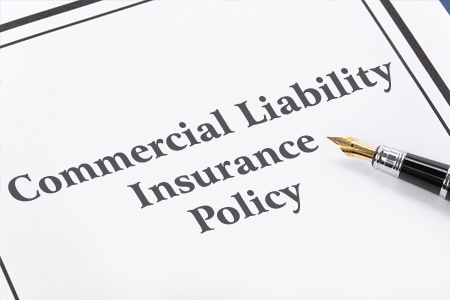
There are a lot of steps that must be taken before you open your dental practice, but one of the most important items on the list is securing the insurance you need to operate. Before your practice is operational, you need to be sure you have several different types of insurance in place. These simple steps can protect you from costly liability lawsuits, prevent you from losing your dental practice before it even has a chance to get off the ground, and even prevent you from losing your dental license. While insurance may seem like an expensive proposition, it's also an important part of keeping your practice operating smoothly.
When you're in school, you'll hear plenty of information about malpractice insurance, which will help protect you in the event of an accident when you're treating a patient. Securing the right types of coverage for your new practice, however, goes far beyond malpractice insurance. Make sure that you have all the critical types of insurance coverage before your practice is operational.
Disability insurance: What happens if you are, for whatever reason, no longer able to practice--especially on a temporary basis? Your physical health is critical to your ability to continue practicing, and if that fails, you may find yourself in a bind. Disability insurance can help protect you and your practice if you're injured or ill.
Life insurance: You have dependents who rely on you--or family members that you don't want to burden with unexpected costs if you die suddenly. Life insurance is relatively easy and inexpensive to secure when you're young and in good health, and becomes more difficult to secure as you age or have health problems--so make sure that you have a solid life insurance policy in place as soon as possible.
Business property coverage: Do you own the property where your practice will operate? If so, you need property coverage that will protect you from natural disasters and other breakdowns that could destroy your office.
General liability coverage: When you own a business, you're open to legal trouble from a number of different angles--and it's not all related to the way you practice dentistry. In order to protect against lawsuits from falls and other hazards, make sure you have general liability coverage on your business.
Worker's compensation insurance: You need a number of employees to keep your practice running smoothly--and if they're injured on the job, your practice is responsible for paying for their medical bills and providing some income while they're out. Carrying worker's compensation insurance is the smart way to protect yourself and your employees.
if they're injured on the job, your practice is responsible for paying for their medical bills and providing some income while they're out. Carrying worker's compensation insurance is the smart way to protect yourself and your employees.
Property insurance: If you're renting your practice, rather than owning the property outright, you'll find that property insurance is a valuable addition to the policies you carry. This simple addition protects your equipment and other items in the event of a disaster that destroys the facility.
Employment practices liability insurance: These days, it seems as though everyone is willing to go after the slightest offense. EPLI protects your business against the legal costs of claims of discrimination, harassment, wrongful termination, and more. This coverage is a critical way to keep legal expenses from draining your practice's bank account.
Malpractice insurance: Accidents happen, no matter how hard you try to prevent them. Sometimes, your tools might slip. In other cases, you might miss a serious problem that a patient's dental records should have indicated. Malpractice insurance won't protect you in the event of deliberate mistreatment of a patient, but it will protect your personal assets and your business from accidental problems in patient care.
When you first start operating, you may find yourself skimping on insurance coverage in an effort to keep costs low. If you start out looking for inexpensive policies, however, you may miss out on several types of coverage that can be extremely beneficial to your practice in the event of a disaster. Consider items like:
In the early days of your practice, the cost of your insurance policies is high on your list of things to consider first. There are several other factors, however, that should be part of your decision.
How much will you need to pay out of pocket in the event of a claim? Most insurance policies will require you to pay a deductible before coverage kicks in. Make sure you fully understand the potential costs of a disaster and how much you'll be expected to pay.
How much coverage are you able to obtain? Low-cost coverage is great, but not when it fails to protect your assets! Take a look at the full coverage amount of the policy and how it compares to the assets you stand to lose in the event of a disaster or the potential costs of an accident. Make sure that you have adequate coverage for those events--even if it costs a little more.
Does the coverage extend where you need it to? For example, you might need coverage that extends to associates in your practice or coverage that details the specific work that your office does.
Choosing the right insurance policy isn't always easy. Make sure that you consider the most important factors for your practice before deciding on the policy that will most effectively meet your needs--and review your coverage often to make sure that you've changed it to reflect the growth in your practice. An annual review will help ensure that you still have adequate insurance coverage to protect your personal finances and your dental practice no matter what comes your way.
Whether you are building or buying a dental practice, be sure you consult with legal counsel to make sure you are compliant every step of the way.
Frequently Asked Questions
Q: Why is insurance important for a dental practice before it becomes operational?
A: Insurance is crucial to protect your practice from costly liability lawsuits, prevent financial loss, and ensure the smooth operation of your business. It helps safeguard your dental license and assets.
Q: What is malpractice insurance, and why is it essential for a dental practice?
A: Malpractice insurance protects your practice against accidental errors in patient care, safeguarding your personal and business assets. It does not cover deliberate mistreatment of patients.
Q: What is disability insurance, and how does it benefit a dentist?
A: Disability insurance provides financial protection if you cannot practice due to illness or injury. It helps ensure your practice continues to operate smoothly during your recovery.
Q: Why should dentists consider life insurance early in their careers?
A: Life insurance is easier and less expensive to secure when you are young and healthy. It protects your dependents and family from unexpected financial burdens in the event of your death.
Q: What does business property coverage include?
A: Business property coverage protects your practice's premises from natural disasters and other events that could cause damage or destruction to your office.
Q: How does general liability coverage protect a dental practice?
A: General liability coverage shields your business from lawsuits unrelated to dental practice, such as slip-and-fall accidents on your premises.
Q: What is the purpose of worker’s compensation insurance?
A: Worker’s compensation insurance covers medical bills and provides income for employees injured on the job, protecting both your practice and your employees.
Q: How does property insurance differ for rented premises?
A: If you rent your practice's location, property insurance protects your equipment and belongings in the event of disasters or accidents that damage the facility.
Q: What is employment practices liability insurance (EPLI)?
A: EPLI protects your business from legal costs associated with claims of discrimination, harassment, wrongful termination, and other employment-related issues.
Q: What additional types of coverage should be considered for a dental practice?
A: Consider data loss coverage, equipment breakdown coverage, non-location-specific malpractice coverage, employee driving liability coverage, business interruption coverage, and a liquor rider for events where alcohol is served.
Q: What should be considered when choosing an insurance policy for a dental practice?
A: Consider the deductible costs, coverage amounts compared to potential losses, and whether the policy covers specific needs, such as associate coverage or specific work types.
Q: Why is it important to review your insurance coverage regularly?
A: An annual review ensures your insurance coverage reflects your practice's growth and adequately protects your finances and business against potential risks.
Q: How can legal counsel assist when securing insurance for a dental practice?
A: Legal counsel can help ensure compliance with insurance regulations and provide guidance on choosing the right policies for your specific practice needs.
At Dental & Medical Counsel, we've been instrumental in realizing the practice goals of countless dentists. Whether you're looking to purchase, launch, or sell a dental practice, our expertise is your guide. Beyond the initial stages, we're committed to ensuring your dental practice remains legally compliant.
We provide comprehensive support, including employment law protections, dental contract reviews, and assistance with dental employment agreements. Additionally, we specialize in incorporating dental practices and securing trademarks. And for long-term planning, our services extend to helping dentists with succession and estate planning. Trust us to be your partner in every step of your dental practice journey.
.jpg?width=300&height=396&name=Ali%20Website%201_edited%20(1).jpg)
About Ali Oromchian, Esq.
Your Dental Lawyer
Ali Oromchian, JD, LL.M., is a leading legal authority in dental law and the founding attorney of Dental & Medical Counsel, PC, with over two decades of experience. His deep connection to dentistry comes from his wife's nearly two-decade-long career as a pediatric dentist.
This personal insight fuels his dedication to empowering dentists to navigate their legal challenges and achieve their practice goals. In doing so, Ali has helped thousands of doctors open their practices while maintaining legal compliance.
Ali is frequently quoted and contributes articles to dental publications, including the California Dental Society, Progressive Dentist, Progressive Orthodontists, Dentistry Today, Dentaltown, and The New Dentist magazines, further showcasing his commitment to the dental community.

Stay updated with industry news!
1904 Olympic Blvd, Suite 240
Walnut Creek, CA 94596
Phone: 925-999-8200
Fax: 925-884-1725
frontdesk@dmcounsel.com
| Monday | 8:00AM - 6:00PM |
| Tuesday | 8:00AM - 6:00PM |
| Wednesday | 8:00AM - 6:00PM |
| Thursday | 8:00AM - 6:00PM |
| Friday | 8:00AM - 6:00PM |
| Saturday | Closed |
| Sunday | Closed |